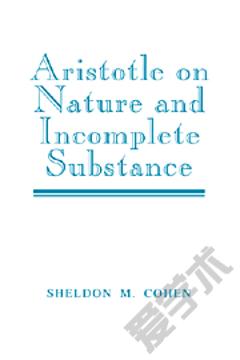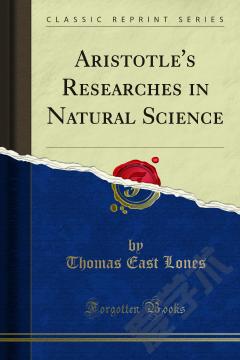Aristotle and the Science of Nature: Unity without Uniformity
Andrea Falcon's work is guided by the exegetical ideal of recreating the mind of Aristotle and his distinctive conception of the theoretical enterprise. In this concise exploration of the significance of the celestial world for Aristotle's science of nature, Falcon investigates the source of discontinuity between celestial and sublunary natures and argues that the conviction that the natural world exhibits unity without uniformity is the ultimate reason for Aristotle's claim that the heavens are made of a special body, unique to them. This book presents Aristotle as a totally engaged, systematic investigator whose ultimate concern was to integrate his distinct investigations into a coherent interpretation of the world we live in, all the while mindful of human limitations to what can be known. Falcon reads in Aristotle the ambition of an extraordinarily curious mind and the confidence that that ambition has been largely fulfilled.
{{comment.content}}








 京公网安备 11010802027623号
京公网安备 11010802027623号